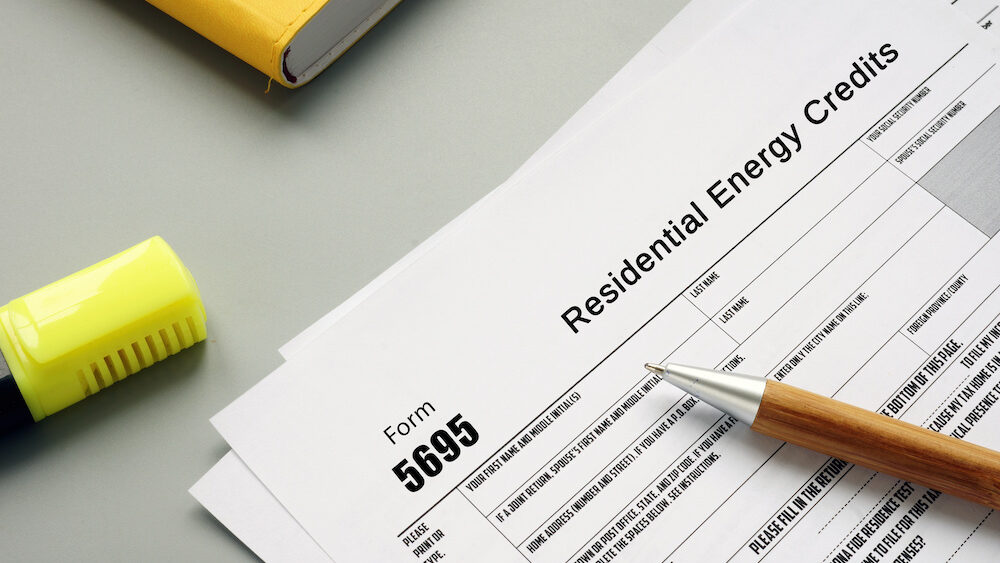
You’ve considered upgrading energy systems in your home but wonder whether the monthly energy savings will justify the high up-front investment. After all, it can take months or years to recover your investment through monthly savings. However, new tax credits for investing in energy savings upgrades help shorten the time frame. Here are the credits available and how to benefit from them.
Federal energy tax credit provisions
Homeowners can qualify for up to $3,200 annually in federal income tax credits under the Inflation Reduction Act of 2022 for 30 percent of specific energy improvements made on their main home. There is no lifetime dollar limit. These credits began in 2023 and run until the end of 2032, although there are some partial credits for improvements made in 2022. Improvements that qualify include:
- New windows.
- New doors.
- Upgraded insulation.
- Heat pumps.
- Heat pump water heaters.
- Electrical panel upgrades.
Home energy audits also qualify for the credit.
Homeowners can also qualify for federal Residential Clean Energy credits for installing rooftop solar panels, wind energy generation, geothermal heat pumps, battery storage and biomass stoves and boilers.
To qualify for these credits, the home must be:
- Your primary residence, in most cases.
- Located in the United States.
- An existing home you improve or expand, not a new house.
If you use your home for business purposes less than 20 percent, you are entitled to the full Residential Clean Energy credit. If you use your home for business use more than 20 percent, your credit will be based on the share of expenses allocable to your non-business use of the house.
IRS Form 5695 is used to file for credits on your tax return. The IRS does not refund the difference if your tax credit exceeds the total taxes owed.
For a fuller reading of the tax provisions for energy upgrades, go here.
Don’t forget to check for state and local tax rebates
In addition to federal tax credits, many state and local governments offer tax rebates for similar energy upgrades, so research what may be available in your area. Some utility companies also provide credits.
Related – Saving Green With a Home Energy Audit


